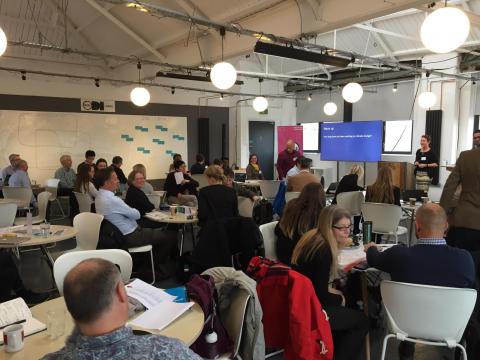Rachel Perks, who works on Climate Services at the Met Office, gave us her take on the recent SPF UKCRP workshop held in Leeds
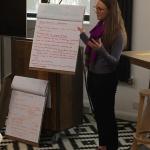 A workshop was led by the SPF UK Climate Resilience Programme (UKCRP) in Leeds on the 14th and 15th November this year. Its purpose was to bring together an interdisciplinary group of researchers from across academia and relevant professions, with a focus on developing climate risk solutions to build the resilience of the UK to climate change and climate variability.
A workshop was led by the SPF UK Climate Resilience Programme (UKCRP) in Leeds on the 14th and 15th November this year. Its purpose was to bring together an interdisciplinary group of researchers from across academia and relevant professions, with a focus on developing climate risk solutions to build the resilience of the UK to climate change and climate variability.
The Champions of UKCRP, Suraje Dessai and Kate Lonsdale, welcomed participants to the venue (ODI, a networking and events space) ahead of our two-day workshop, albeit with a few train delays due to flooding. They opened with some introductions to the Programme which is led jointly by UKRI and the Met Office and has a pot of funding to achieve three core aims: characterising and quantifying climate related risk; managing climate related risk through adaptation; and co-producing climate services.
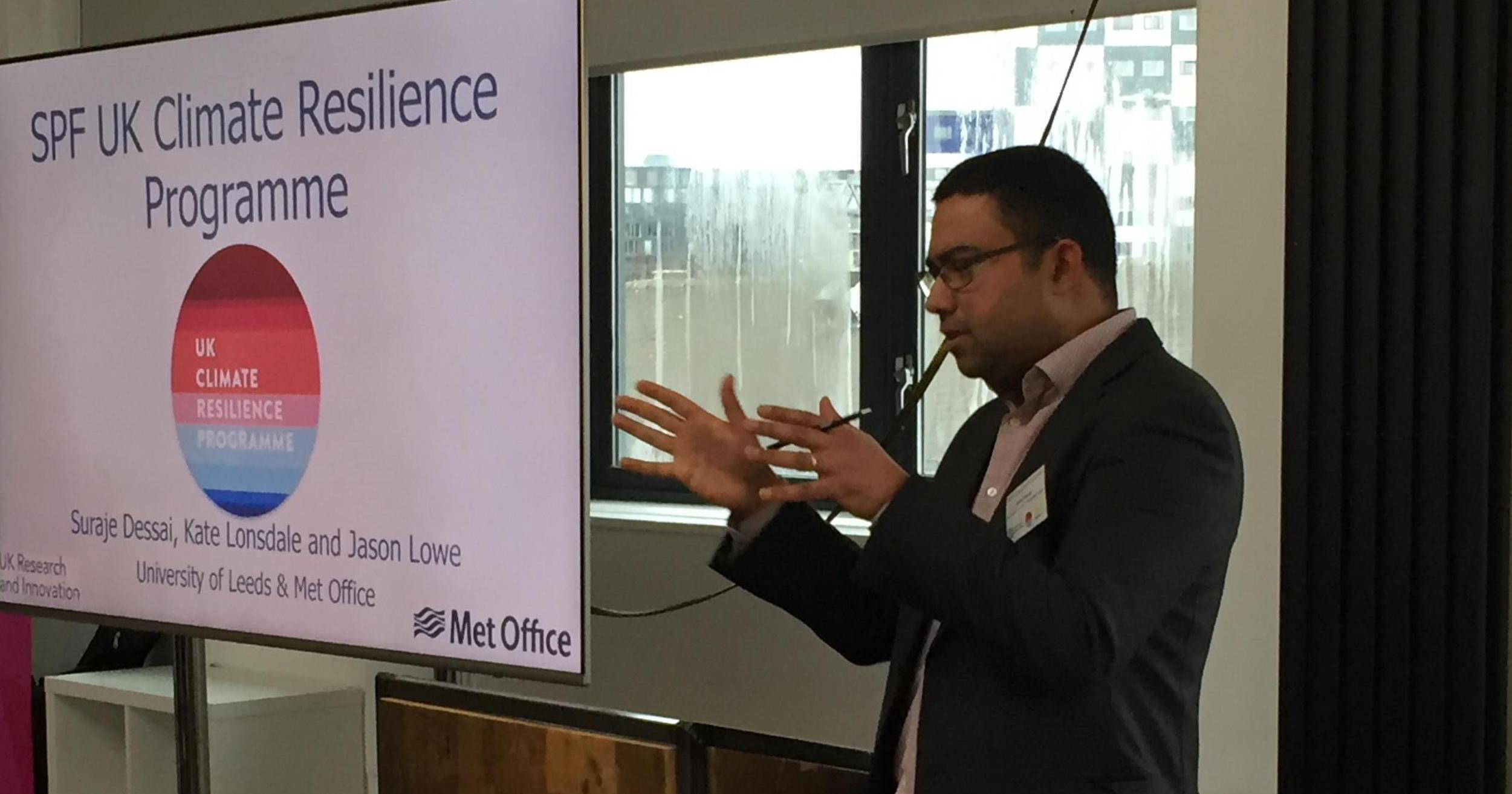
Co-Champion Suraje Dessai introducing the SPF UKCRP
Getting to know each other
The first session started with a meet and greet. The Champions organised us into the first of many tasks with the request, “Please chat to one another and arrange yourselves in a line based on how long you have been working in climate change”. Those that had decades of experience migrated to the coffee machine at one end of the room, while those with less experience made a move for the far side. I quickly followed the latter, only to find I was bumped up the line a few places. It turned out some participants were in their first few weeks/months of their career in climate change, whereas thanks to my previous job in consulting I have almost four years’ of experience (I’m still classified as early career, though). Down the line we went with brief introductions, from “I joined the Met Office Hadley Centre in 1989 and have been working in science ever since”, to “I spent the last seven years in forecasting but moved into climate science on Monday!”.
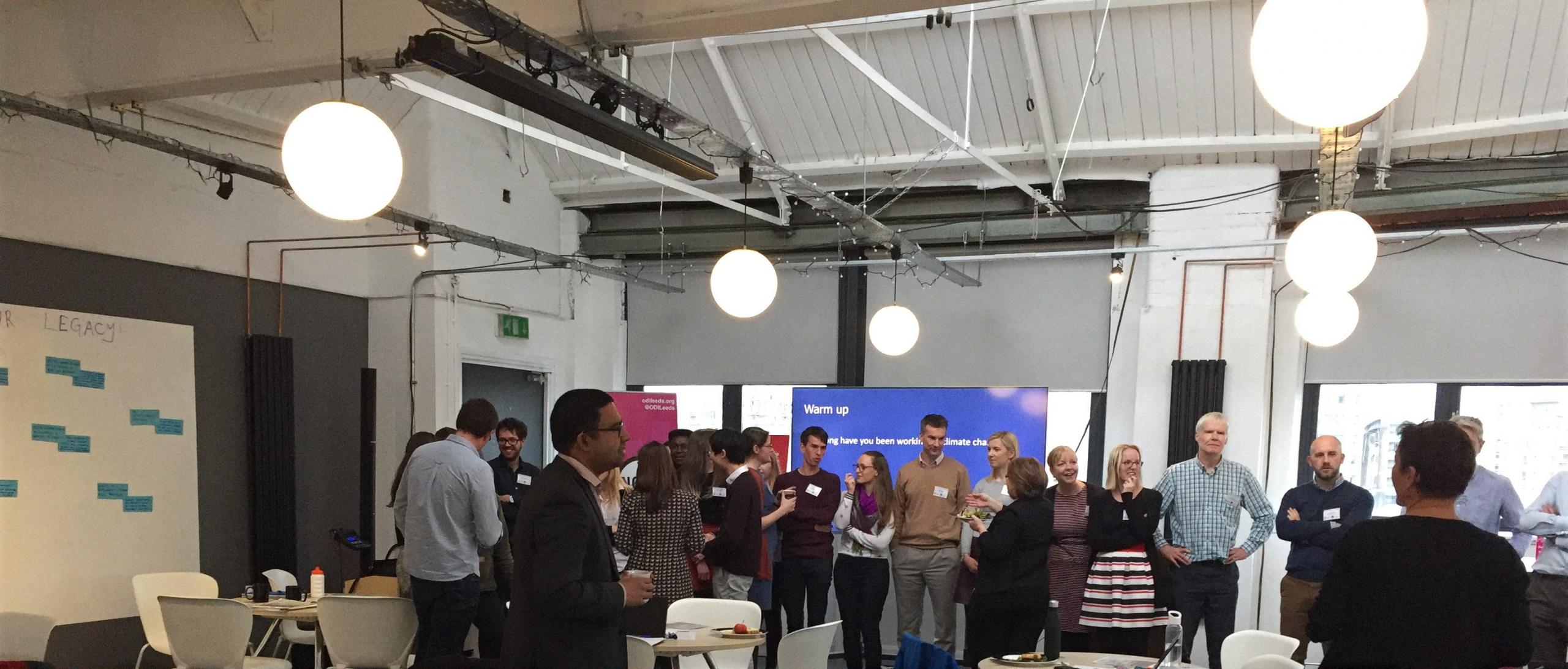
Workshop participants line up for ice-breaker exercise
Introduction to the projects
We then proceeded with a whistle-stop tour of each project within the SPF UK Climate Resilience Programme (19 in total). A representative of each project was given four minutes to explain their project, cover findings to date and link back to the Programme’s three themes. I found the variety of all the work people are doing really interesting, but two projects stood out for me: the Coastal Resilience and FRANTIC projects. My work is around the development of climate services to support coastal resilience to climate change, so I gravitated towards the Coastal Resilience project because it aims to develop better coastal risk management policies and practices, including devising a comprehensive set of indicators of coastal resilience. The FRANTIC project was fascinating and took an alternative perspective on climate risk, considering the transition risks of climate change resulting from the economic impacts of a rapid transition to a sustainable energy system.
Common themes
After a quick break to refuel with a welcome coffee we were on to the next task – discussing common themes across the projects. This was a useful exercise to learn more about each of the projects. Are relevant stakeholders engaged? If so who, and at what stage? What was the spatial dimension of the project? Does it look at a single test community or does it consider the whole of the UK? How many projects will feed into the long planning and policy time frame? Which projects are useful for emergency response, requiring a short time frame? It gave us much to talk about for the rest of the afternoon – and into the evening, too!
Tackling issues
Day two: time to divide and conquer. We had established six key themes across the projects from the previous day and we had two sessions in which to discuss them.
The first session I attended was on Stakeholder Engagement. Kate Lonsdale, one of the SPF UKCRP Champions, led the discussions. I thought the discussions would examine the positives and negatives of including stakeholder engagement, as well as which groups (of stakeholders) would be the best to approach. However, there was a large discussion around funding. I discovered, to my surprise, that many people thought that it was difficult to include stakeholders within the research proposal due to tight deadlines in the application for funds. It was pointed out that as an alternative, funds could be used to pay for stakeholder engagement or projects could be tailored as a pilot scheme to ensure that stakeholders were included from the outset. All of this was new information to me as I had never applied for funding before.
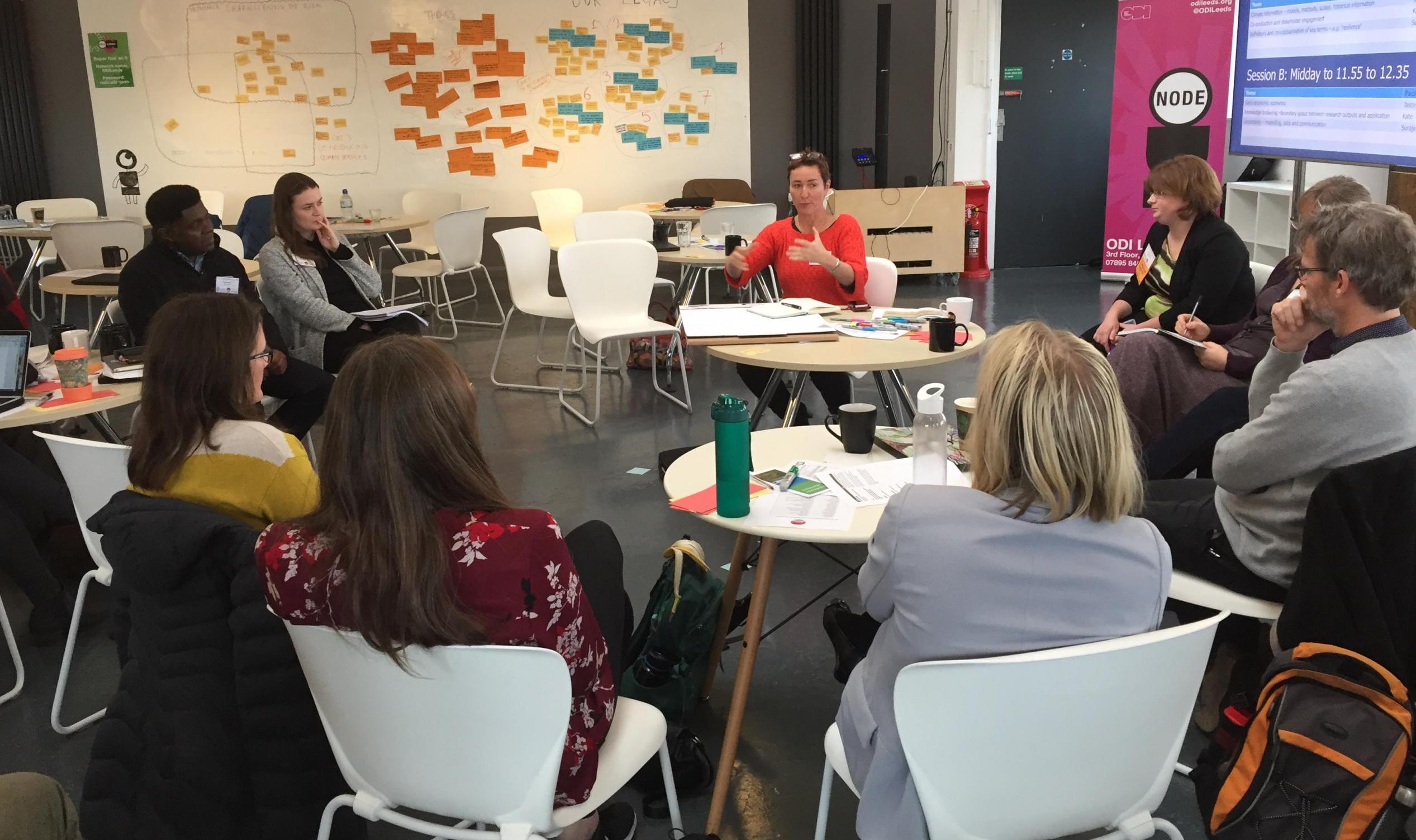
Co-Champion Kate Lonsdale leads a session on stakeholder engagement
Moving on to session two, the groups have all switched up and I was on a table discussing socio-economic scenarios. Jason Lowe led the discussions here (obviously I picked the right seat as I was nominated note-taker!). Firstly, it was brought to my attention as well as to that of a few others around the table that there is a new SPF project being contracted that will develop an internally consistent set of socio-economic data for the UK. The types of socio-economic data discussed included property numbers, property type and monetary value. It was emphasised by the group that this work should be consistent with previous datasets and that socio-economic scenarios should be explained at a level appropriate for the users. Many of us thought that this work would be incredibly valuable for many of the projects going forward into phase 2.
Feedback
After lunch, we reconvened and each group presented their discussions. Mark Harrison gave an overview of the discussions regarding stakeholder engagement, while I nervously presented the socio-economic scenarios group’s conversation.
Feedback highlighted that the communication of climate resilience has proven difficult in the research projects to date. It was thought that resilience should be defined on a project-specific basis, based on the user of the product. There is also large uncertainty in the use of UKCP18 products; however, it is hoped that this will be resolved in phase 2. The importance of model output being interpretable to users was also discussed, as well as the robustness of climate data and communication in relation to worst-case scenarios.
Wrapping up
Overall, I feel the workshop was a fantastic opportunity to learn about all things to do with climate resilience, meet colleagues working in similar areas and discuss possibilities for working together in the future.
So, what is next in the SPF programme? Another workshop hopefully in the Spring, where we can all get together and share progress on the projects.
Rachel Perks, Applied Climate Scientist, UK Climate Resilience, Met Office

